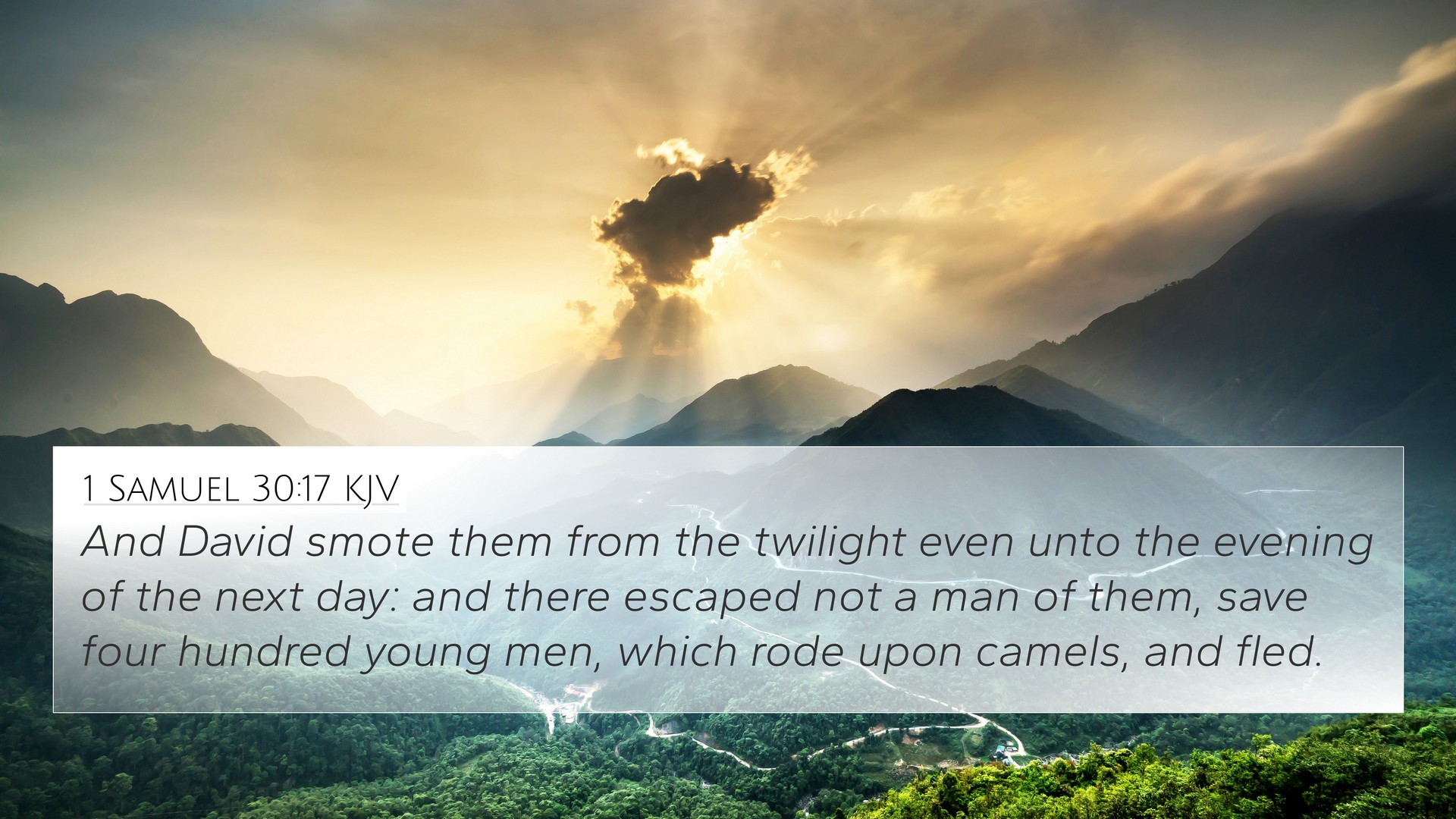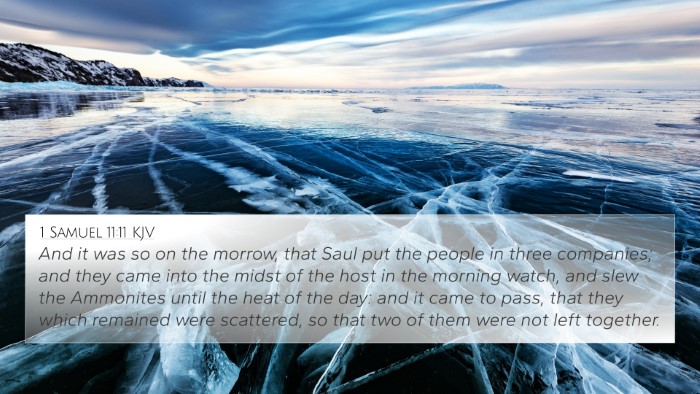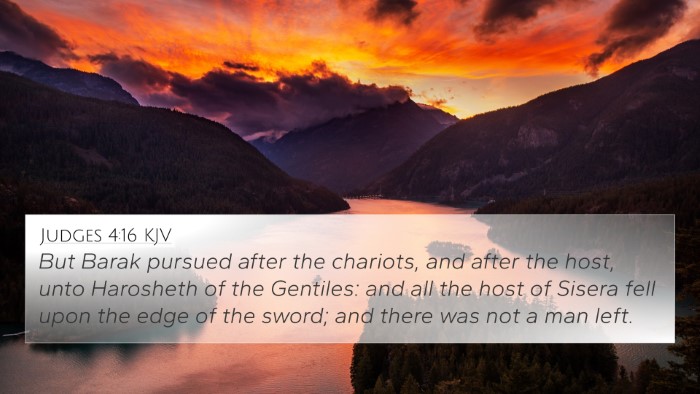Understanding 1 Samuel 30:17
Verse: "And David smote them from the twilight even unto the evening of the next day: and there escaped not a man of them, save four hundred young men, which rode upon camels, and fled."
Summary of Meaning
This verse chronicles one of David's significant military victories, showcasing not only his leadership and combat abilities but also providential guidance. After the Amalekites invaded Ziklag, David pursued them to recover what was stolen, emphasizing themes of resilience, divine support, and justice.
Commentary Insights
- Matthew Henry: Henry highlights David's strategic prowess in warfare, noting that the methodical and relentless nature of his pursuit reflects divine favor. He also portrays the victory as a form of retribution against those who harmed David's people, and the sparing of the young men symbolizes God's mercy.
- Albert Barnes: Barnes focuses on the numbers involved, emphasizing that David's impressive military accomplishment was achieved through faith and reliance upon God. He elaborates on how the left-behind young men represent a core element of David’s future army, thus indicating God’s providence in maintaining a remnant.
- Adam Clarke: Clarke interprets the context of this battle and its aftermath, illustrating the necessity of both divine help and human effort in the midst of adversities. He underscores that David's ability to recover his possessions is a testament to both his leadership and the fulfillment of God’s covenant promises.
Connections Between Bible Verses
The events of 1 Samuel 30:17 resonate with various biblical themes and passages. Below, we explore several cross-references that enhance our understanding:
- 1 Samuel 30:1-6: The context of distress and David's initial reaction provides crucial background for the ensuing battle.
- 2 Samuel 1:1: Following the battle, David learns of Saul's death, framing his kingship with the backdrop of these conflicts.
- Psalms 18:37-39: David speaks of pursuing enemies; the themes align closely with his experiences detailed in this chapter.
- 1 Chronicles 12:22: This verse recounts how men joined David in his might, giving insight into the growing army that would support him.
- Isaiah 41:10: Offers a theological understanding of God's support in battles, paralleling David’s reliance on divine strength.
- Romans 8:31: Paul asserts that if God is for us, who can be against us, matching the sentiment of David's assurance of victory.
- Matthew 6:33: David put first things first, aligning with Christ's urging to seek God's kingdom, leading to the fulfillment of both promise and provision.
Thematic Bible Verse Connections
1 Samuel 30:17 contributes to larger biblical themes of loyalty, divine justice, and physical deliverance.
Throughout the Scriptures, we find echoes of similar struggles:
- The story of Gideon (Judges 7): Highlights God's intervention in seemingly impossible situations, aligning with David's reliance on strength beyond mere numbers.
- David’s reign and legacy (2 Samuel 5): Offers insights into the consolidation of his power resulting from these early victories.
- God's mercy towards Israel (Ezekiel 34:12-16): The theme of rescuing and restoring parallels God's covenant with David and his lineage.
Using Cross-Referencing Tools
For those looking to delve deeper into cross-referencing Bible verses, consider using:
- Bible Concordance: A valuable resource for locating keywords and their occurrences throughout Scripture.
- Bible Cross-Reference Guide: Provides insights into the relationships and connections between various verses.
- Cross-Reference Bible Study: A methodical approach to study themes through interconnected verses.
Conclusion
1 Samuel 30:17 is an essential verse that encapsulates themes of faith, warfare, and divine providence. By understanding cross-references and connections within Scripture, readers can glean deeper insights into God’s character and His interactions with His people. As we study these connections, we find that the biblical narrative weaves together a comprehensive tapestry of God's plan for redemption and deliverance.







